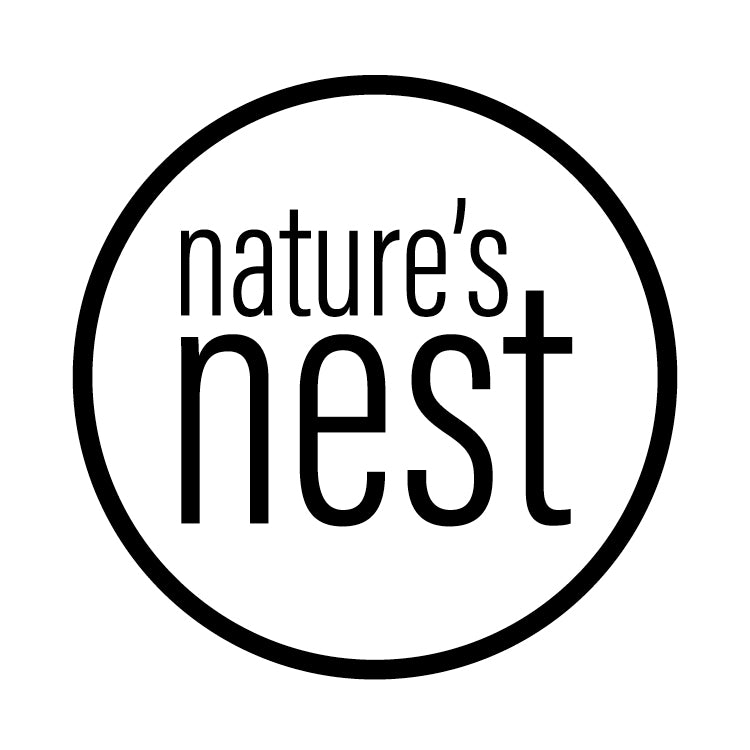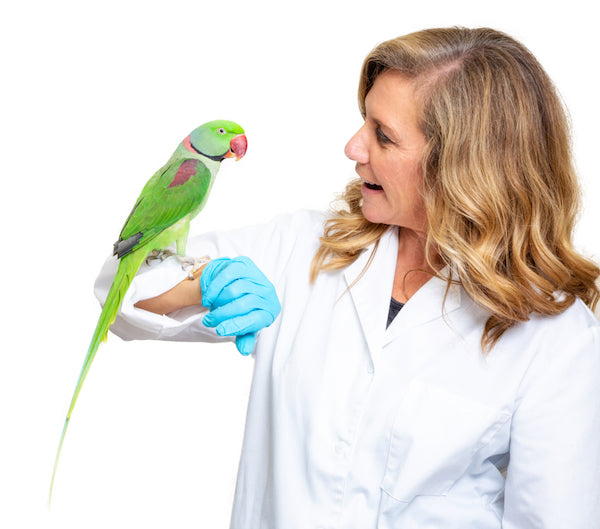In today's digital age, information is just a few clicks away. When it comes to seeking advice on pet health, a quick Google search might seem like a convenient solution. However, relying solely on online resources can lead to misinformation and potentially harmful consequences for your beloved pets. In this blog post, we'll explore the dangers of relying on Google for pet health advice, highlighting specific examples that underscore the importance of consulting a qualified veterinarian or avian specialist instead.
1. Misdiagnosis and Inaccurate Information
One of the most significant risks of relying on Google for pet health advice is the potential for misdiagnosis. Just like with human health, symptoms in pets can be vague and indicative of various underlying issues. When pet owners search for their pet's symptoms online, they might come across a wide range of potential causes. Without proper medical training, it's easy to misinterpret these symptoms and jump to conclusions, which could lead to unnecessary stress for both the pet and the owner.
Example: A cat owner notices that their cat is vomiting occasionally. A Google search yields a range of potential causes from mild indigestion to life-threatening conditions. Fearing the worst, the owner becomes anxious, when in reality, the cat's vomiting might be due to a minor dietary change or hairballs.
2. Delayed Professional Care
Relying on online information might cause pet owners to delay seeking professional care. Pets, like humans, require timely medical attention for the best chance of recovery. Waiting to see if a condition improves based on internet advice can worsen the pet's condition, making treatment more challenging and potentially more expensive.
Example: A dog owner notices that their dog's paw is swollen and red. Instead of immediately consulting a veterinarian, they search online and find a suggestion that it might be a minor irritation. Days later, the swelling worsens, and the dog is in considerable pain, requiring more intensive treatment than if they had sought help sooner.
3. One-Size-Fits-All Approach
Pets, like people, are unique individuals with distinct medical histories and needs. Online advice often takes a one-size-fits-all approach that might not consider your pet's specific situation, breed, age, or medical history. This can lead to inappropriate treatments or recommendations that could be detrimental to your pet's health.
Example: A bird enthusiast notices that their parrot is becoming less active and their feathers appear dull. A Google search suggests a particular dietary supplement that has worked wonders for some birds. However, what the owner doesn't know is that parrots have different nutritional requirements based on their species, and the supplement could actually harm their specific bird.
4. Lack of Context and Professional Judgment
Online articles and forums lack the context and professional judgment that a qualified veterinarian or avian specialist can provide. Professionals consider a pet's overall health, medical history, and environment when making diagnoses and treatment recommendations. Internet advice might not consider all these factors, potentially leading to ineffective or even harmful treatments.
Example: An avian enthusiast notices that their pet parakeet has a slightly runny nose and is sneezing occasionally. A Google search suggests it might be a minor cold and advises using human over-the-counter cold remedies. However, avian respiratory systems are delicate, and what seems like a minor cold in humans could escalate into a serious respiratory infection in birds, requiring specific avian medications and care.
Expertise at Nature's Nest: Dr. Coetzee de Beer and Dr. Deon de Beer
At Nature's Nest, we understand the complexities of pet health, especially when it comes to avian companions. That's why we have not just one, but two avian veterinarians on our team to ensure the highest level of care for your feathered friends. Dr. Coetzee de Beer BVSc (Hons) MANZCVS (Avian Health), most likely the highest qualified avian vet, and Dr. Deon de Beer (BVSc) one of the pioneering avian vets in South Africa with over 40 years of avian experience, are integral parts of our team. They meticulously review all our products and provide their expert insights to guarantee the well-being of your avian companions.
Please Note: While we are passionate about avian health and provide high-quality products for your pets, we do not provide medical advice. For personalized guidance and professional medical consultation for your avian companions, we recommend reaching out to Dr. Coetzee de Beer at the Centre for Avian, Reptiles, and Exotics. His expertise and experience in avian care make them the ideal choice for addressing any concerns you may have about your feathered friends. You can find more information about his services at https://vet-care.co.za/.
Additionally, when seeking medical advice for your pets, it's important to ensure that you're consulting a qualified and reputable veterinarian. We encourage all our customers to inquire about their veterinarian's credentials to ensure that they have the necessary expertise and training to provide accurate and reliable advice. Your pets deserve the best care possible, and verifying your vet's credentials is a crucial step in ensuring their well-being.
Conclusion
While the internet is a valuable source of information, it's crucial to recognize its limitations, especially when it comes to the health of our pets. Relying on Google for pet health advice can result in misdiagnosis, delayed treatment, inappropriate recommendations, and a lack of professional context. Instead, consult a qualified veterinarian or avian specialist who can provide accurate, personalized, and expert advice tailored to your pet's unique needs.
Your pets deserve the best care possible, and at Nature's Nest, we strongly advise seeking guidance from professionals like Dr. Coetzee de Beer, who have the knowledge and experience to ensure their well-being. Remember to ask for your vet's credentials to make informed decisions about your pet's health.
1. Misdiagnosis and Inaccurate Information
One of the most significant risks of relying on Google for pet health advice is the potential for misdiagnosis. Just like with human health, symptoms in pets can be vague and indicative of various underlying issues. When pet owners search for their pet's symptoms online, they might come across a wide range of potential causes. Without proper medical training, it's easy to misinterpret these symptoms and jump to conclusions, which could lead to unnecessary stress for both the pet and the owner.
Example: A cat owner notices that their cat is vomiting occasionally. A Google search yields a range of potential causes from mild indigestion to life-threatening conditions. Fearing the worst, the owner becomes anxious, when in reality, the cat's vomiting might be due to a minor dietary change or hairballs.
2. Delayed Professional Care
Relying on online information might cause pet owners to delay seeking professional care. Pets, like humans, require timely medical attention for the best chance of recovery. Waiting to see if a condition improves based on internet advice can worsen the pet's condition, making treatment more challenging and potentially more expensive.
Example: A dog owner notices that their dog's paw is swollen and red. Instead of immediately consulting a veterinarian, they search online and find a suggestion that it might be a minor irritation. Days later, the swelling worsens, and the dog is in considerable pain, requiring more intensive treatment than if they had sought help sooner.
3. One-Size-Fits-All Approach
Pets, like people, are unique individuals with distinct medical histories and needs. Online advice often takes a one-size-fits-all approach that might not consider your pet's specific situation, breed, age, or medical history. This can lead to inappropriate treatments or recommendations that could be detrimental to your pet's health.
Example: A bird enthusiast notices that their parrot is becoming less active and their feathers appear dull. A Google search suggests a particular dietary supplement that has worked wonders for some birds. However, what the owner doesn't know is that parrots have different nutritional requirements based on their species, and the supplement could actually harm their specific bird.
4. Lack of Context and Professional Judgment
Online articles and forums lack the context and professional judgment that a qualified veterinarian or avian specialist can provide. Professionals consider a pet's overall health, medical history, and environment when making diagnoses and treatment recommendations. Internet advice might not consider all these factors, potentially leading to ineffective or even harmful treatments.
Example: An avian enthusiast notices that their pet parakeet has a slightly runny nose and is sneezing occasionally. A Google search suggests it might be a minor cold and advises using human over-the-counter cold remedies. However, avian respiratory systems are delicate, and what seems like a minor cold in humans could escalate into a serious respiratory infection in birds, requiring specific avian medications and care.
Expertise at Nature's Nest: Dr. Coetzee de Beer and Dr. Deon de Beer
At Nature's Nest, we understand the complexities of pet health, especially when it comes to avian companions. That's why we have not just one, but two avian veterinarians on our team to ensure the highest level of care for your feathered friends. Dr. Coetzee de Beer BVSc (Hons) MANZCVS (Avian Health), most likely the highest qualified avian vet, and Dr. Deon de Beer (BVSc) one of the pioneering avian vets in South Africa with over 40 years of avian experience, are integral parts of our team. They meticulously review all our products and provide their expert insights to guarantee the well-being of your avian companions.
Please Note: While we are passionate about avian health and provide high-quality products for your pets, we do not provide medical advice. For personalized guidance and professional medical consultation for your avian companions, we recommend reaching out to Dr. Coetzee de Beer at the Centre for Avian, Reptiles, and Exotics. His expertise and experience in avian care make them the ideal choice for addressing any concerns you may have about your feathered friends. You can find more information about his services at https://vet-care.co.za/.
Additionally, when seeking medical advice for your pets, it's important to ensure that you're consulting a qualified and reputable veterinarian. We encourage all our customers to inquire about their veterinarian's credentials to ensure that they have the necessary expertise and training to provide accurate and reliable advice. Your pets deserve the best care possible, and verifying your vet's credentials is a crucial step in ensuring their well-being.
Conclusion
While the internet is a valuable source of information, it's crucial to recognize its limitations, especially when it comes to the health of our pets. Relying on Google for pet health advice can result in misdiagnosis, delayed treatment, inappropriate recommendations, and a lack of professional context. Instead, consult a qualified veterinarian or avian specialist who can provide accurate, personalized, and expert advice tailored to your pet's unique needs.
Your pets deserve the best care possible, and at Nature's Nest, we strongly advise seeking guidance from professionals like Dr. Coetzee de Beer, who have the knowledge and experience to ensure their well-being. Remember to ask for your vet's credentials to make informed decisions about your pet's health.

